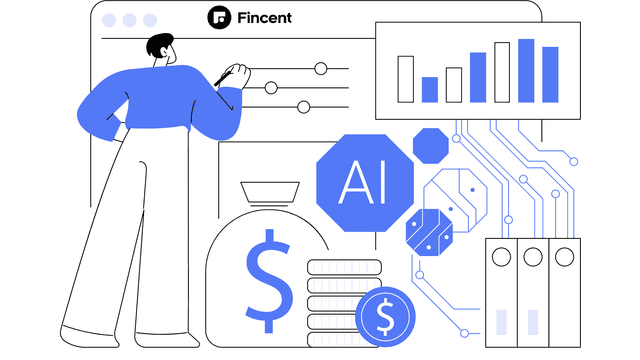- Glossary
- UCC-1 Financing Statement
UCC-1 Financing Statement
A UCC-Uniform Commercial Code-1 statement is a formal document that creditors file to formally announce their right to pursue personal property belonging to debtors who default on business loans they have extended. These notices, which are sometimes shortened as UCC-1, are usually published in local newspapers to inform the public of the creditors' intentions.
According to the Uniform Commercial Code (UCC), UCC-1s are required for all business loans. They establish a relative priority over which particular assets may be seized and in what order, as well as establishing the collection pecking order in situations where there are multiple lenders to the same debtor.
Types Of Ucc-1 Statements
Lenders can submit any of the next two UCC-1 statement types:
- **Specific collateral UCC-1 statements **- They are most frequently used in deals involving property or machinery. They grant lenders first-order secured rights to real estate or particular collateral, such as equipment bought with loaned money, as collateral..
- Blanket lien - As long as the conditions of these liens are specified in the collateral part of the UCC-1 statement, this grants the lender secured rights to a variety of assets. Lenders frequently favor broad or "all-asset" liens.
How A UCC Filing Affects Credit Scores?
Most businesses have a credit report and score, just like people do. Even though a UCC lien will show up on a company's credit record, it is unlikely that it will immediately lower the company's credit score unless the company were to default on the underlying loan.
Additionally, the debt linked to a UCC filing can increase a company's credit utilization ratio. If this ratio becomes too elevated, it may adversely impact the credit score. Furthermore, if a lien is placed on an asset, the business will be unable to use it as collateral for another loan.
Example Of A Ucc-1 Statement
Let's say that Alex's Excavation, a construction company, requests a business loan to buy two new hydraulic excavators. In order to formalize their interest in lending Alex money, Bank XYZ files a UCC-1. A short while later, Alex's Excavation loses two of its main building contracts, forcing the business to declare bankruptcy.
Bank XYZ would probably not be granted first-order rights to Alex's property and would have to wait until all other lenders were paid because the company had multiple lenders. Nonetheless, the bank promptly got the assets/cash stated in the UCC-1 declaration because it registered a specific collateral lien against the two excavators.
How Do You Remove A UCC Filing?
There are essentially two ways to discharge a UCC lien, albeit state regulations differ.
- The first is to submit a UCC-3 statement asking the lender to immediately release the lien upon loan repayment in full.
- The other choice is to go to your local secretary of state's office and declare under oath that you have satisfied the debt in full and request to have the UCC-1 removed if your lender fails to submit a UCC-3 after you have paid off the loan.
Conclusion
An official notice known as a UCC-Uniform Commercial Code-1 (UCC-1) statement is one that creditors file to officially establish their authority to seize assets from debtors who default on loans.
To publicly announce a lender's intention to seize collateralized assets, UCC-1 notices are frequently published in local newspapers.
The major purpose of these documents is to facilitate the collection process, frequently by assisting lenders in obtaining court orders allowing them to confiscate assets from defaulting borrowers.
These documents need to be sent to organizations based in the state where the borrower's company is incorporated.
UCC-1 statements can either be linked to a specific piece of collateral or be blanket liens.


